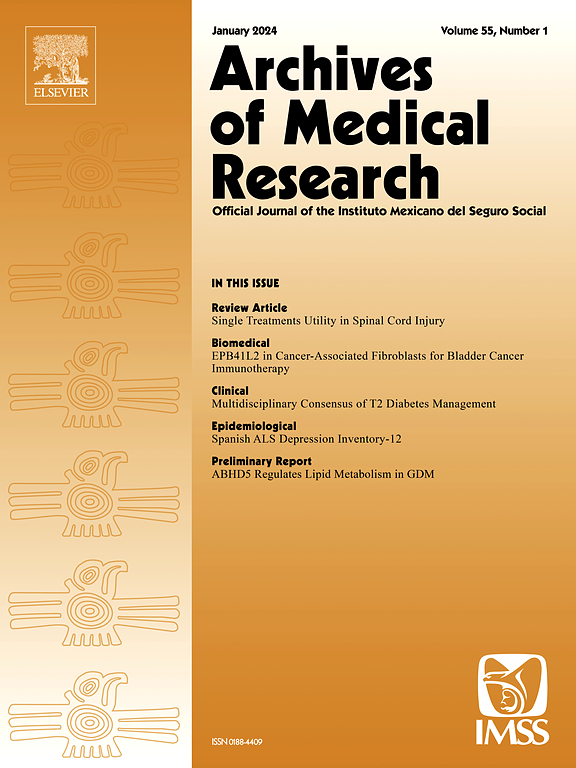Clinical characteristics and outcomes of infective endocarditis in patients with cancer: A multicenter case-control study
IF 4.7
3区 医学
Q1 MEDICINE, RESEARCH & EXPERIMENTAL
引用次数: 0
Abstract
Background
Due to increased exposure to health hazards, patients with cancer are at a higher risk of developing infective endocarditis (IE), which in turn maximizes their risk of poor outcomes. This study aimed to analyze IE events in patients with cancer and matched controls.
Methods
We conducted a retrospective case-control study in four third-level centers in Mexico City between 2006 and 2022. Patients with IE were identified; cases (patients with cancer) were matched in a 1:2 ratio with controls (patients without cancer). Baseline characteristics, factors associated with IE, and outcomes were assessed in both groups.
Results
A total of 108 patients were included (36 cases and 72 controls). After logistic regression analysis, the risk factors independently associated with IE in cases were obesity (adjusted odds ratio [aOR] 9.03, 95 % CI 1.5–51.8), surgery within six months before IE (aOR 6.23, 95 % CI 1.8–21.5), and invasive procedures within six months prior to IE (aOR 3.89, 95 % CI 1.15–13.1). Healthcare-associated IE was more common in these cases, as were systemic embolic episodes. Subjects with S. aureus IE were more prone to experience systemic embolization. There were no differences in mortality between the groups.
Conclusion
In this study, risk factors associated with the healthcare environment were more frequent in patients with IE and cancer. S. aureus was a common culprit and was associated with systemic embolization.
癌症患者感染性心内膜炎的临床特点和结局:一项多中心病例对照研究
由于暴露于健康危害因素的增加,癌症患者发生感染性心内膜炎(IE)的风险更高,这反过来又使其预后不良的风险最大化。本研究旨在分析癌症患者和对照组的IE事件。方法2006 - 2022年在墨西哥城4个三级中心进行回顾性病例对照研究。确定IE患者;病例(癌症患者)与对照组(非癌症患者)按1:2的比例配对。对两组的基线特征、与IE相关的因素和结果进行评估。结果共纳入108例患者,其中病例36例,对照组72例。经logistic回归分析,与IE病例独立相关的危险因素为肥胖(调整比值比[aOR] 9.03, 95% CI 1.5-51.8)、IE前6个月内的手术(aOR 6.23, 95% CI 1.8-21.5)和IE前6个月内的有创手术(aOR 3.89, 95% CI 1.15-13.1)。在这些病例中,与医疗保健相关的IE更为常见,系统性栓塞发作也是如此。金黄色葡萄球菌IE患者更容易出现全身栓塞。两组之间的死亡率没有差异。结论与卫生环境相关的危险因素在IE合并癌症患者中更为常见。金黄色葡萄球菌是常见的罪魁祸首,并与全身栓塞有关。
本文章由计算机程序翻译,如有差异,请以英文原文为准。
求助全文
约1分钟内获得全文
求助全文
来源期刊

Archives of Medical Research
医学-医学:研究与实验
CiteScore
12.50
自引率
0.00%
发文量
84
审稿时长
28 days
期刊介绍:
Archives of Medical Research serves as a platform for publishing original peer-reviewed medical research, aiming to bridge gaps created by medical specialization. The journal covers three main categories - biomedical, clinical, and epidemiological contributions, along with review articles and preliminary communications. With an international scope, it presents the study of diseases from diverse perspectives, offering the medical community original investigations ranging from molecular biology to clinical epidemiology in a single publication.
 求助内容:
求助内容: 应助结果提醒方式:
应助结果提醒方式:


